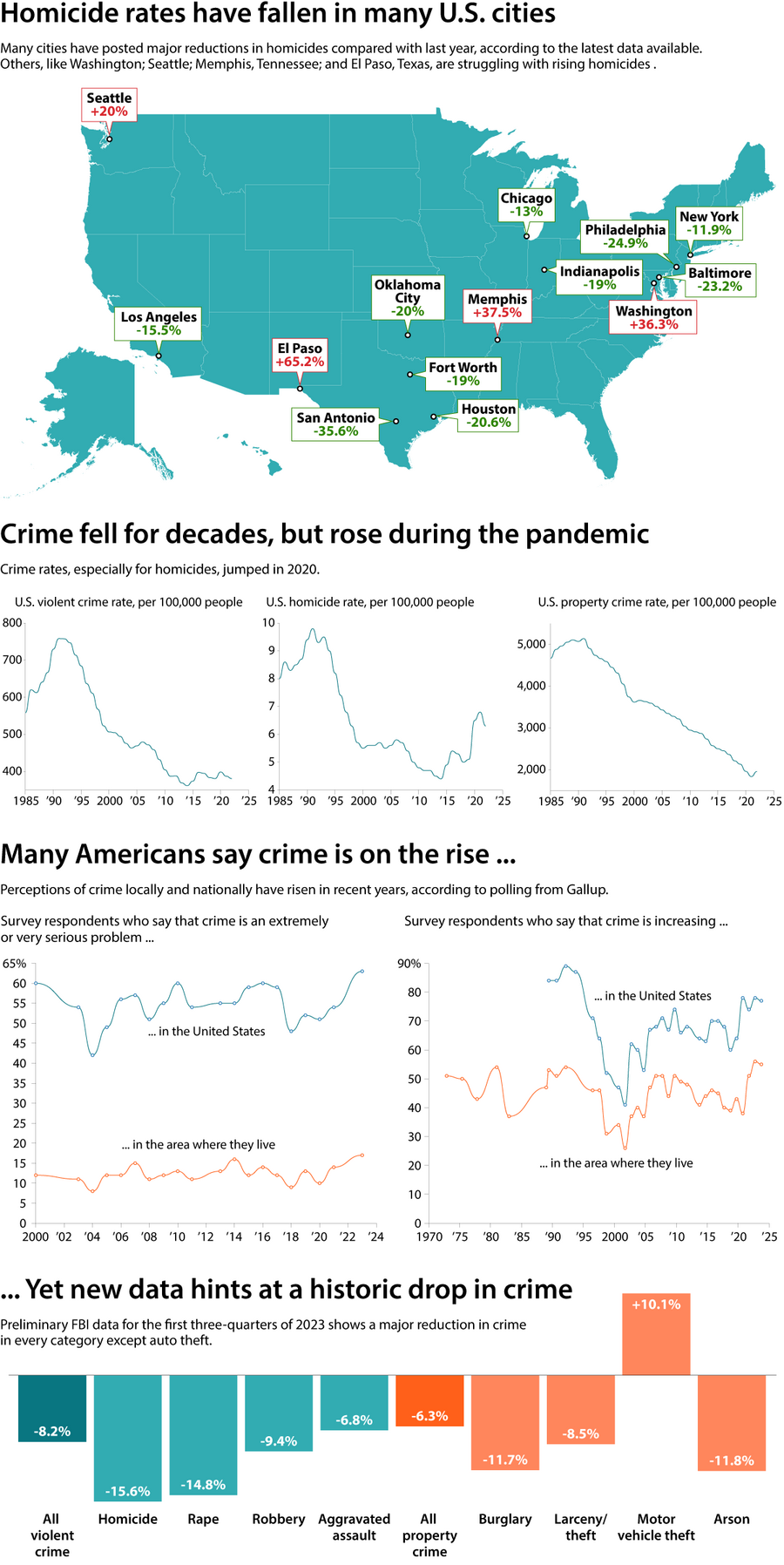Did US homicide rate rise or fall in 2023? The answer might surprise you.
Loading...
The homicide rate in the United States last year dropped more in a single year than it ever has in recorded history.
By quite a bit, too. There were about 13% fewer homicides in the U.S. in 2023 compared with 2022, according to early estimates of crime data. The previous record was a 9% drop in 1996. That means 2,000 fewer people were killed last year, compared with the year before.
“What’s more, every type of [serious crime] with the exception of auto theft is likely down a considerable amount this year [2023] relative to last year [2022],” writes Jeff Asher, co-founder of AH Datalytics, which tracks crime data in 180 cities.
Why We Wrote This
A story focused onThe U.S. homicide rate dropped by the most on record in 2023 – a welcome reversal after pandemic spikes in violence. But a majority of Americans still think crime is rising. What lies behind the disconnect?
There are some important contexts, however. Last year’s record decline in the homicide rate brings to an end the spikes that occurred during the pandemic years. The homicide rate in 2023 was still slightly more than it was in 2019. But it also was still roughly half of what it was in the early 1990s.
The perception among most Americans, however, is that violent crime remains rampant across the U.S.
According to a Gallup poll in November, about 77% of respondents say they believe there was more crime in 2023 than in 2020, yet the numbers don’t show that. In addition, nearly 2 out of 3 Americans say crime in the U.S. is either extremely or very serious – one of the most pessimistic outlooks Gallup has measured.
But U.S. cities are reporting remarkable drops in killings. Detroit reports its fewest number of homicides since 1966. Baltimore, with one of the highest homicide rates in the nation, saw its number fall 23% last year. New Orleans witnessed a 27% drop, Atlanta and Milwaukee both saw a 22% drop, and Houston had a 21% drop. New York saw 12% fewer homicides; Los Angeles, 15%; and Chicago, 13%.
A few cities did see significant increases, however. Memphis, Tennessee, experienced a spike of 31%. Washington and Seattle experienced 20% more, and Dallas 14% more.
“The encouraging drop in violent crime shows that the COVID effect is beginning to wear off,” says Richard Aborn, president of the Citizens Crime Commission of New York City. “While very encouraging, we also have to be mindful that crime rates are still above their pre-pandemic levels, and so we need to continue to push for fair and effective public safety strategies. Like with good economic data, the public likely won’t feel safer for some time as improvements in the perception of public safety always lags behind the reality of public safety.”








